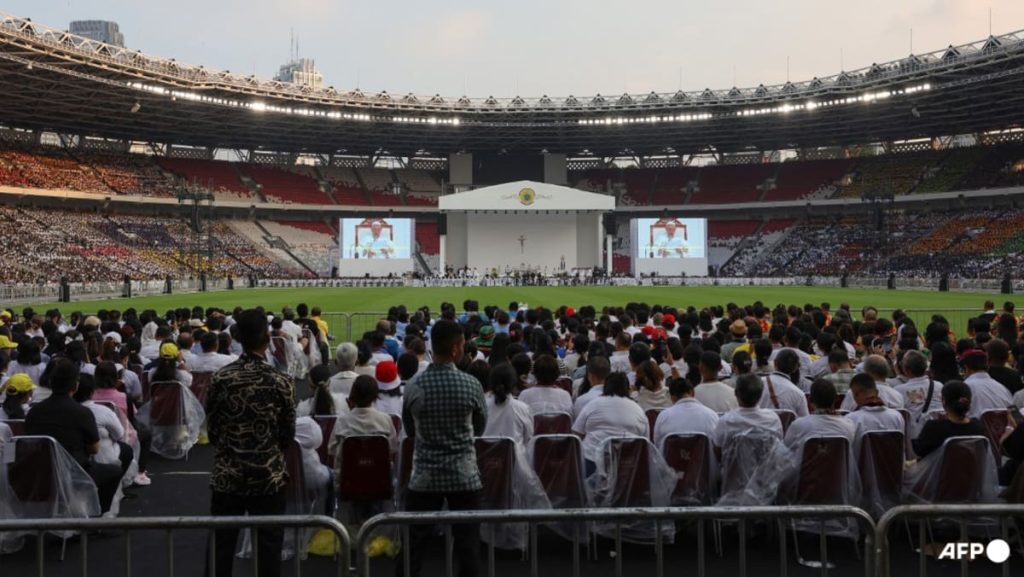During his visit to Indonesia, Pope Francis highlighted the importance of unity between different faiths to promote religious harmony and eliminate the global issue of dehumanization, which often leads to violence and conflict. At the Istiqlal Mosque, Southeast Asia’s largest mosque, a declaration was signed calling for religious harmony for the sake of humanity. The role of religion, according to the declaration, should focus on promoting and safeguarding the dignity of every human life.
In a speech before leaders of Indonesia’s six recognized religions, which include Islam, Protestantism, Catholicism, Buddhism, Hinduism, and Confucianism, Pope Francis emphasized the idea that all individuals are connected as brothers and pilgrims on their way to God, beyond the differences that may exist between them. This message of unity was symbolized by his visit to the mosque, where he was welcomed by a percussion band commonly used in Islamic ceremonies. During the visit, a young blind girl recited a passage from the Quran, followed by a reading from the Bible, highlighting the shared values and teachings present in both religious traditions.
The global phenomenon of dehumanization remains a pressing concern, as religion is often misused as a tool to incite violence and division among different groups. Pope Francis’s call for unity and harmony among faiths is aimed at addressing this issue and promoting a collective effort to ensure the dignity and respect of every human life. By focusing on common values and beliefs that transcend religious boundaries, individuals can work together to foster understanding, tolerance, and peaceful coexistence in a diverse and interconnected world.
The Pope’s visit to Indonesia serves as a reminder of the importance of dialogue and cooperation among different religious communities to combat extremism, discrimination, and prejudice. His outreach to leaders of various faiths underscores the need for mutual respect, acceptance, and collaboration to build a more inclusive and compassionate society. By engaging in interfaith dialogue and cooperation, individuals can bridge divides, challenge stereotypes, and promote solidarity in the face of growing tensions and conflicts fueled by religious differences.
The declaration signed at the Istiqlal Mosque reflects a shared commitment to upholding the fundamental principles of equality, justice, and human dignity across religious traditions. Pope Francis’s message of unity resonates with the teachings of compassion, kindness, and empathy found in many faiths, urging followers to look beyond differences and embrace the common humanity that unites them. Through joint efforts to promote understanding and dialogue, individuals can confront the challenges of dehumanization and violence, fostering a culture of peace, harmony, and mutual respect in a pluralistic society.
In conclusion, Pope Francis’s visit to Indonesia underscores the importance of fostering unity and respect among different faiths to address the global issue of dehumanization and promote religious harmony for the betterment of humanity. By promoting dialogue, understanding, and cooperation among diverse religious communities, individuals can work towards building a more inclusive and peaceful world where the dignity and rights of every human being are upheld and respected. The Pope’s message of unity serves as a powerful reminder of the shared values and teachings that unite individuals across different traditions, inspiring individuals to come together in solidarity and compassion to create a more harmonious and just society for all.


